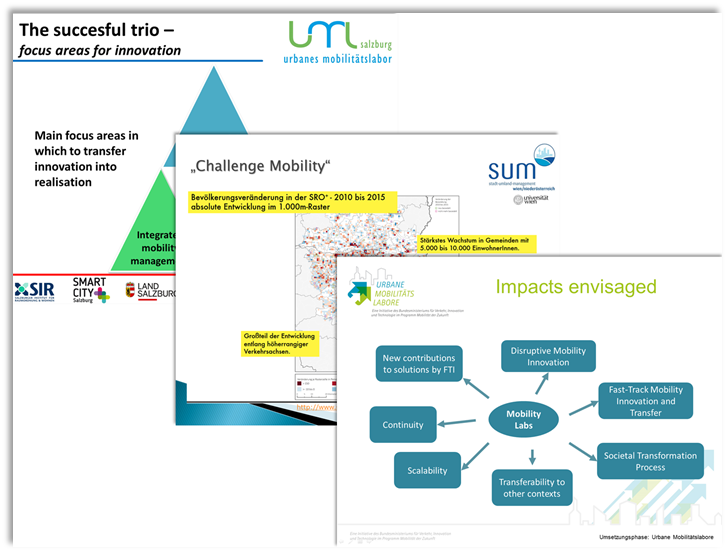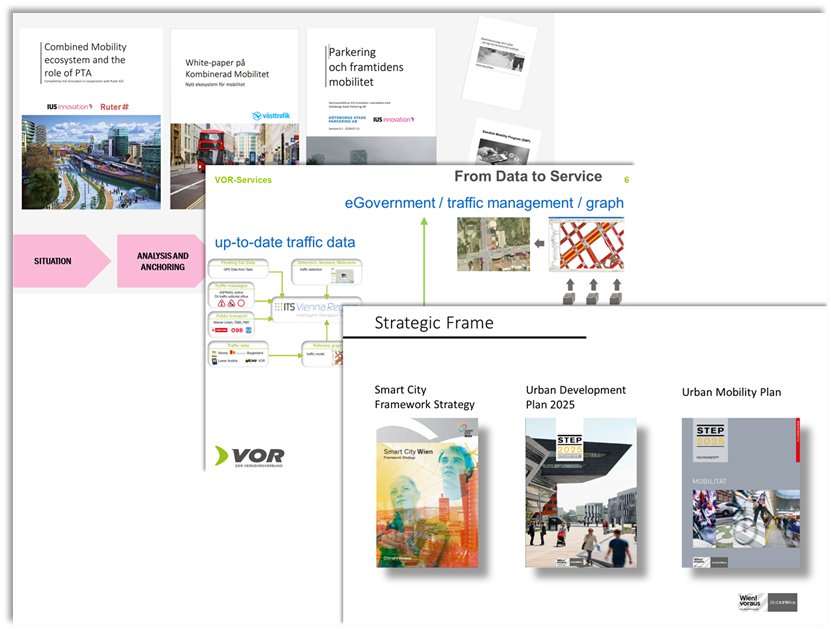On 14th May, 2019, the 2nd International Expert Panel (IEP) Workshop within the Project “OptiMaaS” took place in Vienna. We were glad to welcome Doris Wiederwald (AustriaTech) and Gregor Stratil-Sauer (City of Vienna – MA 18) again.
The mobility experts Andreas Hacker (Stadt-Umland-Management Wien/Niederösterreich), Martin Berger (TU Wien / aspern mobil) and Barbara Bilderl (VOR) also contributed to the 2nd IEP Workshop.
This time we focused two topics,
- “Mobility Services in urban non-core areas – What are Challenges, Solutions and Effects?”
- “Framework strategy – which conditions must be created to support MaaS in urban non-core areas?”
The experts shared their experience with multimodal mobility services, spatial planning, regional development and how to communicate with different stakeholders.
First keynote presentations were held by:
♦ Doris Wiederwald (AustriaTech) – MaaS Made In Austria, MaaS in Austria region East
♦ Doris Wiederwald (AustriaTech) – Urban Mobility-Labs in Austria, UML Salzburg
♦ Martin Berger (TU Wien / aspern mobil) – Aspern.mobil LAB of TU Wien
♦ Andreas Hacker (Stadt-Umland-Management Wien/Niederösterreich) – Mobility services in urban – non core area
♦ Barbara Bilderl (VOR) – A nach B app, Routing System and Applications
♦ Gregor Stratil-Sauer (MA18) – Attitude city of Wien at MaaS, vision about future mobility offers and necessary measures, next steps
♦ Tommy Vestlie (Ruter) – Norway, MaaS strategy in the Nordic region)


In two workshop sessions in World Café format the participants discussed ideas and shared experience in the following subjects:
World Café 1: “Mobility Services in urban non-core areas – what are Challenges, Solutions and Effects?”
Summary and conclusion
According our experts the challenges of ensure data quality standards and prohibit misuse of data such as building business models on open data can be overcome by setting clear rules. Public authorities could act as moderators between private players and provide a common marketplace to share mobility data.
Concerning urban mobility-labs, it currently is seems to work but results in the meaning of a national strategy (transferability) is still a challenge. Therefore a connection to political decision makers is needed, resulting in better chances of transferability. Marketing communication can also contribute to the success of upscaling.
Mobility behavior was also discussed and the difficulty in changing mindset and lack of trust in availability of offers were pointed as obstacles among other factors. Efficient marketing strategies, an integrated approach such as innovative housing concepts and new arrangements of public road space were indicate as good strategies to drive change.
World Café 2: “Framework strategy – which conditions must be created to support MaaS in urban non-core areas?”
Summary and conclusion
Different approaches towards mobility were shown and the different strategies of the municipalities of Vienna and Oslo were illustrated. The current scenario of MaaS and the tools that will shape the future of mobility lead to good perspectives of how OptiMaaS can bring ecological and sustainable solutions that will help Brussels, Oslo and Vienna to improve MaaS offers in urban non-core areas.
Measures were presented to improve operation-models for existing and future business models. From the point of view of costumers, the experts brainstormed which existing MaaS solutions effectively contribute for new mobility behaviors and where are the possibilities for improvement.
And finally, the role of governance authorities was addressed, how public authorities can outline paths that converge to a future where intermodal mobility is a reality.
Concluding, the insights of both World Café sessions feed into the concept of the OptiMaaS Lab where MaaS solutions for non-core urban areas will be piloted and tested in terms of usability and user acceptance.